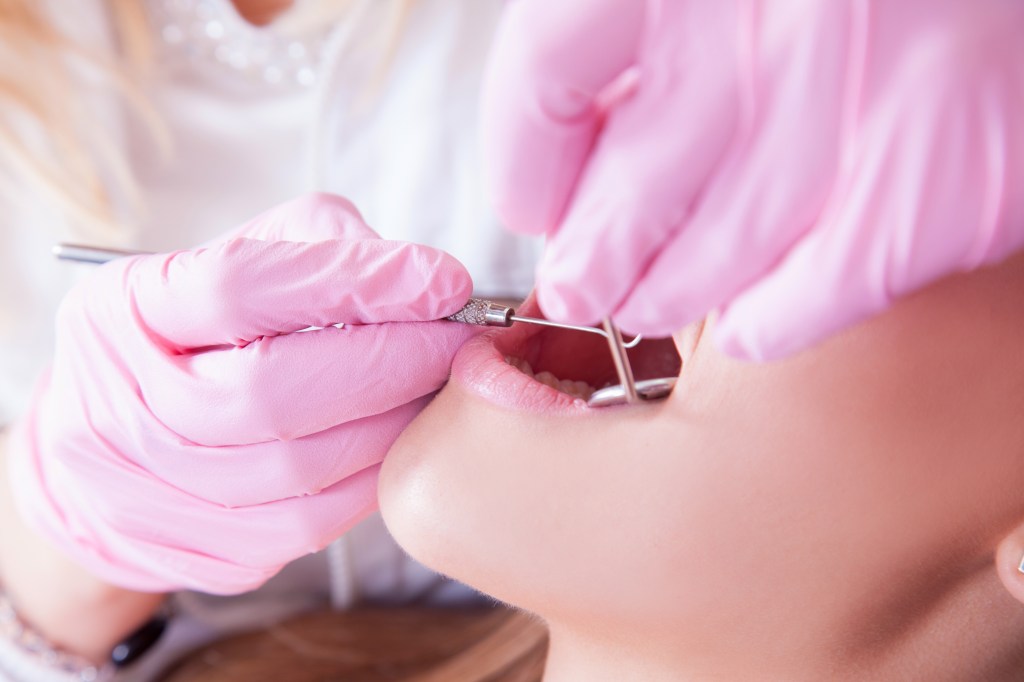The cost of neglecting one’s teeth is higher than just a crooked or less-than-gleaming smile. Diabetes, heart disease, stroke, chronic pain, compromised nutrition – and, in pregnant women, a greater risk of premature or low-birth-weight babies – all have been linked to poor oral health.
With a low number of dentists per capita in Maine, those seeking dental care here have fewer options than residents of other states. So the University of New England’s dental school deserves kudos for its creative approach to the issue: holding a camp aimed at encouraging Maine high schoolers to consider a career in dentistry in their home state.
But access to dental services is just one issue. Affordability is another, major problem. And it’s one that’s aggravated by the fact that MaineCare, the state’s Medicaid program, stopped covering adult dental services in 2000. The state should reconsider this policy and fund preventive care now rather than spending more later to address problems made much worse by neglect.
Covering adult dental services is optional under federal Medicaid law, so it’s not surprising that only 25 states offer an adult dental benefit. Eliminating this coverage appears to be the right move for states trying to rein in spending. But some states are now reinstating the benefit.
Take Idaho, which restored adult dental coverage this year. The state had counted on saving $1.7 million a year when it eliminated this coverage in 2011. Idaho’s health and welfare director, who had touted the cut, declined to specify exactly what the move cost the state. But dental-related emergency room services soared, from $30,000 a month in 2011 to $65,000 a month by 2014. “In one case, sepsis caused by an abscessed tooth cost the Medicaid program $300,000,” The Spokane Spokesman-Review reported.
Treating dental disease in the emergency room also has been costly for Maine, where one in five adults is a MaineCare recipient. In 2009, MaineCare spent $6.6 million on avoidable dental ER visits and outpatient services that didn’t address the underlying disorder, according to a 2011 state report.
A measure before the Legislature this year could have been a move in the right direction – it would have allowed adult MaineCare recipients to receive one free dental cleaning a year. But lawmakers rejected even that incremental approach, though the link between poverty and poor dental health has been well-established. In a 2013 study, for example, the Maine Center for Disease Control and Prevention noted that almost half of Mainers 65 and older with an annual income of under $15,000 have lost all their permanent teeth, compared to 4.1 percent of their peers with a yearly income of at least $50,000.
It’s clear that low-income Mainers, Maine taxpayers and the state’s hospitals are already paying a high price for the lack of an adult MaineCare dental benefit. And this cost will only increase unless lawmakers take a longer-term view and commit to covering these much-needed services.
Send questions/comments to the editors.



Success. Please wait for the page to reload. If the page does not reload within 5 seconds, please refresh the page.
Enter your email and password to access comments.
Hi, to comment on stories you must . This profile is in addition to your subscription and website login.
Already have a commenting profile? .
Invalid username/password.
Please check your email to confirm and complete your registration.
Only subscribers are eligible to post comments. Please subscribe or login first for digital access. Here’s why.
Use the form below to reset your password. When you've submitted your account email, we will send an email with a reset code.